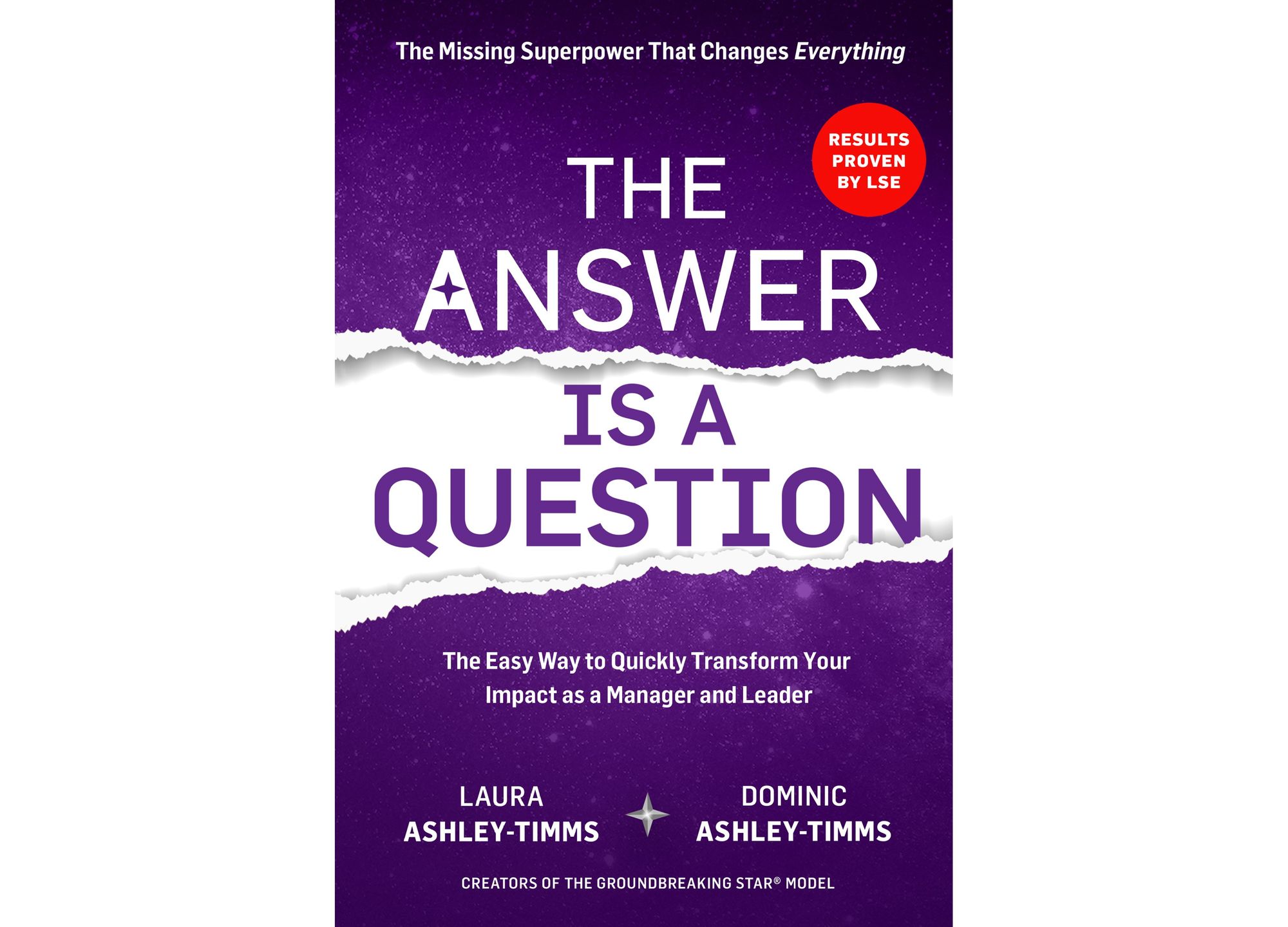Interested in starting your own entrepreneurial journey in business development but unsure what to expect? Then read up on our interview with Dominic Ashley-Timms, Founder and CEO of Notion - STAR®, located in Royal Leamington Spa, England, UK.
What's your business, and who are your customers?
We focus on creating conditions inside organisations that allow everyone to flourish and bring the best of themselves to their work. How we do that is by helping managers to adopt a new set of behaviours that invite that contribution from their teams and their team members by developing a more engaging style of management based around the use of purposeful enquiry.
At the inception of our company, Notion, we worked with the SME sector. Now our clients tend to be very large corporations where we work with many, many hundreds of managers simultaneously to bring about those changes in the way that they engage with their teams, most often generating very large returns on investment for those clients. The work we do is not only a good thing to do per se, but also it is a commercially sound idea - tapping into the unexplored potential of the workforce pays handsome dividends.

Tell us about yourself
I've had a really interesting career. I worked in strategy for an oil company; then I became a change management consultant working with large retail clients, then I spent time as a programme director working with large-scale change programmes, including company integrations. The insights I developed from my work is that there is a different way of doing change. And actually, it's about how you engage people in the change you want to implement. Change just doesn't happen in an organisation by sending out an email. Change is actually affected through people changing how they respond, what new processes they can develop, and how they are able to work in a streamlined way. So if we can find a more positive way of engaging people in change, then it stands to reason that the change will be more effective. It'll be more rapid; it'll be more positive. And so I was on the side of people during change.
One way we can do that is to help managers really engage people in the changes happening around them. To do that, they need to ask effective questions that help people to think about the circumstances and the changes needed - how are they going to adapt? How are they going to make that better? What role do they have to play in that? Whether that is to remain with the organisation or, unfortunately, to exit. At least if they are asking questions and engaged, they have their hands around some certainty. The inception of the business, Notion, was born out of the idea that we could do change more effectively by working with managers to be better change agents by engaging the people around them.
What motivates me each day to do what we do, is the scale that we're now working at. We often work with very, very large groups of managers and leaders in organisations, and also the variety of work that we're engaged in. We work in every sector. Increasingly, we're working internationally too, where organisations want to effect a change consistently across their operations. And we're able to generate absolutely astonishing positive feedback from our work, and that sustains us. In fact, when we have people sending in positive results, and they want to tell us about their successes, we share those all around the office. We have an internal chat channel, so everyone in my company can read what people are writing about their experience of working with us. It's really important that people in our company understand the impact that our work is having on the clients we work for. So that absolutely motivates us each day to do more and be better.
What's your biggest accomplishment as a business owner?
Remaining in business for 23 years and growing. We have come through two recessions and a global pandemic. We have not lost anybody because of a downturn in the business. We've always managed to maintain our staffing. We've continued to develop and be relevant to our clients and to our market.
That is an accomplishment I'm proud of. A lot of other businesses who have tried to operate within our sector have fallen by the wayside - we haven't. We're very focused on what we do. We're very resolute in what we do. And we are determined in what we're doing, and those values have really helped us to remain a solid and reliable business for our clients for these past 23 years.
What's one of the hardest things that comes with being a business owner?
Balancing the time between those things you know must be done. And those things that you want to do more of. Such as spending time with members of your team. It can be very hard to let go and outsource tasks. When you're a smaller business, you have direct responsibility for more things. But as the business grows, you need to learn to trust people to pick up parts of your role and responsibilities. I've never been let down by my judgment, thankfully. We've got an amazing team, and the more I've let go of, the more they have picked up.
As a business owner, you have to challenge yourself with this question - is what I'm doing now adding the maximum value to my company? If it's not, then find a way of outsourcing it. You need to be thinking - is this the best use of my time, and is this going to help the company, or am I becoming an administrator right now? Being a business owner means you need to be more entrepreneurial, which means you need to be working with your people to help advance things that are going to grow the company. You need to be talking to clients and ensuring that the company is delivering a great service. All of those things help maintain a strong and healthy company.
What are the top tips you'd give to anyone looking to start, run and grow a business today?
- The biggest tip for starting a business is don't worry about the business cards. Don't worry about the marketing literature. Don't worry about the uniform. Don't worry about the office. If you cannot secure a contract, you don't have a business. So, proof of concept. Fake it till you make it. Go and get a piece of business. Once you have got a big piece of business and you've got some funding, then you can start with the business cards and the marketing materials and everything else. But if you cannot actually go out there and sell what you've got with the passion and conviction that you've got, then having business cards and marketing literature in a shop isn't going to make any difference.
- When you're running a business, you need to focus on where the next contract is coming from and how you are developing the business. Because if you're not developing a pipeline of business, there will be no continuing revenue.
- Growing a business is being sure that as you're growing, there are customers who are going to buy what you're developing.
Where can people find you and your business?
Website: https://starmanager.global/
Facebook: https://www.facebook.com/NotionLimited/
Twitter: https://twitter.com/STARmanager_HQ
LinkedIn: https://www.linkedin.com/company/notion-star/
If you like what you've read here and have your own story as a solo or small business entrepreneur that you'd like to share, then please answer these interview questions. We'd love to feature your journey on these pages.
Turn your craft into recurring revenue with Subkit. Start your subscription offering in minutes and supercharge it with growth levers. Get early access here.



